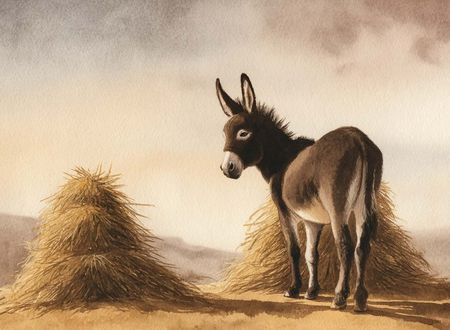I was in the service of Naga Baba, my guru, when one day, one of his favorite devotees came and sang glories of Baba. Naturally, I was delighted, but Baba not so much. I didn’t think much of Baba’s stern look because, although at times Baba had a wonderful sense of humor, he was mostly serious. Part of the reason was that there were too many things going on and there was a shortage of funds. Baba had said it was weighing on him a bit. The devotee left after a couple of hours, and it was quiet again. That evening, Baba asked me what I thought of the devotee. I really had no opinion on the matter. Besides, anyone who spoke well of my guru was dear to me. But since Baba asked me a question, I had to offer an answer.
“He’s truly a great devotee of yours, Baba,” I said. “He says he can give his life for you and that you are his only guru. So much so, yours is the only picture he has at his altar and in his shop.”
“It’s easy to give what they know they don’t have to give,” Baba scoffed. “Will there ever be a situation where I’d ask for his life? And since when have intense feelings made anyone a great devotee, Sarvanand?” 1
“Ji Baba.” I knew Baba had popped the question rhetorically.
“Intense feelings that don’t translate into action have no use to me, to our dharma, to the world, or even to him,” he said. 2
“Ji Baba.”
“He has intense feelings for me because my penance, our lineage, the grace of Divine Mother have helped him steer the ship of his otherwise rocky life. But that’s all he has—feelings. Huh, give his life! Does he even know how much he has left?”
“Ji Baba.”
Baba went on to say that, all these years, this devotee had never cared to find out what Baba actually required. That, he would come with paan and sweets, and then go away. When it came to Baba, I never tried to read between the lines. I took everything he said at face value. His word was final for me. People who moved his projects were only a handful, as is usually the case with most organizations. Most of the rest were those who simply visited regularly to pay their respects. They came to catch a glimpse of Baba and Baba had never said anything like that about anyone else. In other words, Baba wasn’t greedy or a worldly sadhu looking to enrich his life or hoard anything. He lived an exceptionally simple and frugal life, even austere, for the most part (in the spirit of truth, if I may say: the exact opposite of how I live, perhaps.) So, his annoyance with this devotee was a bit perplexing.
A month later, that devotee passed away.
“What a waste of life,” Baba said. “He had so many opportunities to do good deeds, but he squandered them all on himself and his family. Anyway, may his soul attain moksha.”
When I sat down to write this post, I was going to write about love. I still will. But, I didn’t think of starting with a guru-disciple story and that too from my own life. Yet this story came to mind because finding out what the other person needs, and doing your best to bring that fulfillment to them, is the basis of love. In true love—or more importantly, in a truly loving relationship—this is mutual; it’s a two-way street.
In fact, I wrote about it a long time back too. If you don’t know what the other person requires, it’s anything but love. For sure, we can’t be expected to know everything at all times, but what’s important is whether we are even putting in the effort.
In almost every relationship, hidden somewhere between loving glances and slamming doors, is a peculiar illusion: the belief that intensity equals meaning. That if someone feels deeply—so deeply they compose sonnets (or, if modern, spam WhatsApp with emojis and whatnot)—surely that love must run as deep as the sea. But just as every puddle glistening under the sun is not an ocean, every surge of emotion does not make a relationship meaningful.
Ultimately, it’s sense, purpose, and meaning in a relationship that make it last, that make it beautiful for both people. Emotions are the fuel, but everything else is the engine.
It’s tempting to believe that just because someone adores the ground you walk on, the feeling must be reciprocal. But love is not an exchange rate, there is no fixed parity. You may be someone’s euro but only feel yen in return. One person’s fireworks are another’s flickering candle.
So the next time someone confesses, “I have intense feelings for you,” perhaps the honest reply is, “I’m happy you do, but does the fire warm both of us, or are you just roasting marshmallows by yourself?”
As Erich Fromm wrote in The Art of Loving, “Love is a decision, it is a judgment, it is a promise. If love were only a feeling, there would be no basis for the promise to love each other forever. A feeling comes and it may go. How can I judge that it will stay forever, when my act does not involve judgment and decision.”
But more practically, it’s the ability to find common ground—even if that ground is just a patch of grass where both can sit and sulk together.
Without shared fulfillment, a relationship is somewhat like a poor joke, where only the teller laughs. The joke may be great or the laugh may be genuine, but unless both share in the amusement, it’s hardly a party.
One evening, Mulla Nasrudin’s neighbor found him in the garden, sitting next to a wilted rose bush, sighing deeply.
“Mulla, why do you look so sad?” his neighbor asked.
“I’ve been whispering sweet words and reciting poems to this rose every night, hoping it would bloom for me.”
“But Mulla,” the neighbor said, bewildered, “have you tried watering it?”
“You mean to tell me that my feelings mean nothing to this rose?” Mulla said with a huff of irritation.
Perhaps the most liberating realization is this: you can have intense, genuine feelings for someone and simultaneously recognize that a relationship with them wouldn’t serve either of you. This isn’t failure; it’s wisdom. It’s the difference between trying to force a square peg into a round hole and recognizing that both the peg and the hole are perfect—just not for each other.
Rumi wrote, “Let yourself be silently drawn by the strange pull of what you really love. It will not lead you astray.” But sometimes what we really love is the idea of someone, or the feeling they give us, rather than the actual person and the actual relationship we’d create together.
So perhaps the heart of love is simpler than we imagine: to care enough to wonder what makes the other person’s world brighter, and to act—however quietly—on that knowing. When relationships become a space for genuine giving and gentle understanding, they turn ordinary days into something quietly extraordinary. In this mutual striving, meaning unfolds by itself—unexpected, unforced, and beautifully real.
For in the end, intense feelings are only thunder, it is mutual fulfillment that brings the rain.
Peace.
Swami
Notes
A GOOD STORY
There were four members in a household. Everybody, Somebody, Anybody and Nobody. A bill was overdue. Everybody thought Somebody would do it. Anybody could have done it but Nobody did it.
Don't leave empty-handed, consider contributing.It's a good thing to do today.









Comments & Discussion
198 COMMENTS
Please login to read members' comments and participate in the discussion.